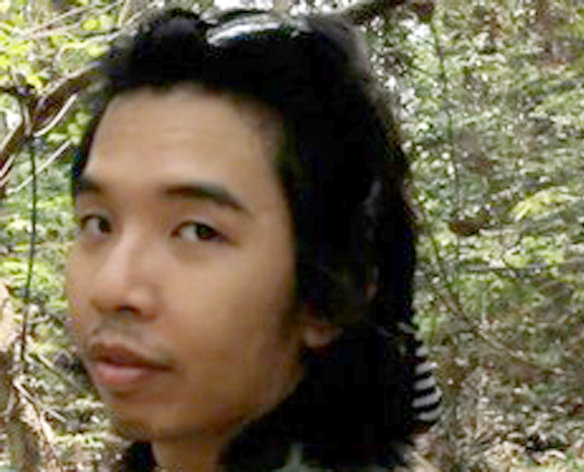By THANYARAT DOKSONE | Associated Press ViewPhotoAssociated
Press - In this undated photo, Thai director Nontawat Numbenchapol is
seen at the site while making movie in Sisaket province, northeastern
Thailand. Nontawat said on Wednesday, April 24, 2013 that
ViewPhotoAssociated
Press - In this undated photo, Thai director Nontawat Numbenchapol is
seen at the site while making movie in Sisaket province, northeastern
Thailand. Nontawat said on Wednesday, April 24, 2013 that
 ViewPhotoAssociated
Press - In this undated photo, Thai director Nontawat Numbenchapol is
seen at the site while making movie in Sisaket province, northeastern
Thailand. Nontawat said on Wednesday, April 24, 2013 that
ViewPhotoAssociated
Press - In this undated photo, Thai director Nontawat Numbenchapol is
seen at the site while making movie in Sisaket province, northeastern
Thailand. Nontawat said on Wednesday, April 24, 2013 that
By Pravit Rojanaphruk in Bangkok/The Nation | Asia News Network
Bangkok (The Nation/ANN) - The director of the latest
banned Thai film about the Thai-Cambodian border dispute and rifts in
Thai politics, says his documentary film is a collection of views from
various sides on the ground and he will appeal to the censorship
committee to reconsider its ban.
Nontawat Nambenjapol, director of the documentary film Fah Tam
Phaendin Soong or Boundary in English, told The Nation yesterday that
people on both sides of the Thai-Cambodian border do not want war. Thai
villagers along the border in Si Sa Ket province, whom he met and
interviewed for the film, blamed Thai domestic politics for fanning
ultra-nationalism.
"They do not want war. They lived there in peace for 30 to 45 years
and had no problems and recognised Preah Vihear as part of Cambodia -
and see the [current] problem as stemming from Thai [domestic]
politics," said Nontawat, 29, whose film is 96 minutes long and was
screened at the Berlin Film Festival in February.
The film includes comments by a Cambodian soldier and Cambodian
villagers along the other side of the border as well. The director said
the soldier felt that Thailand was encroaching on Cambodian land, while
Cambodian villagers did not want war as both sides agreed that "if
there's war, there will be losses on both sides".
The five-man censorship panel under the Culture Ministry cited risk
of creating misinformation and rifts in society for banning it,
considering the film as a threat to national security and bilateral
relations between Thailand and Cambodia. The committee also cited the
title of the film as possibly creating a negative impression of the Thai
monarchy because the word 'fah' or sky, can also be used as a casual
alternate reference to the monarchy and the phrase implied that the sky
is low.
Nontawat, a Bangkokian, said he was surprised by the ban, but vowed
to fight on. "I can still speak, write and convey my message as to how
real local people think about the issue." He also denied his film had
anything to do with the issue of the monarchy, saying that the title of
the film was adopted from an old love song dated from the 1970s about
how people who think differently should be able to coexist.
Kriengsak Silakong, director of the World Film Festival of Bangkok,
said the ban would neither succeed nor stop people who want to see the
film from accessing it on the Internet or through other means, and the
decision is damaging to the censorship committee itself. "They cannot
ban it a hundred per cent," Kriengsak told The Nation.
Manit Sriwanichpoom, co-director of another banned Thai film
Shakespeare Must Die, who is currently fighting the ban through a legal
petition at the Administrative Court, said he hasn't watched Nontawat's
film, but is categorically against censorship.
"People should be able to use their own judgement as to whether they
would agree with the information conveyed in the film or not. Cambodians
also have the right to criticise Thailand. I want to see a society
where critical thinking is employed. The ban by the censorship committee
is condescending towards the mental ability of Thai people," said
Manit, who added that it's time to rethink the existence and role of the
committee.
Prisana Pongtadsirikul, permanent secretary of the Ministry of
Culture, said that the censorship committee has unanimously concluded
that the film negatively affected the monarchy institution, negatively
affected good bilateral relations. "The content also causes disunity in
society, contains sex-related content and displays frontal nudity, and
was not respectful of religions and so cannot be showed in the kingdom,"
she added.

No comments:
Post a Comment